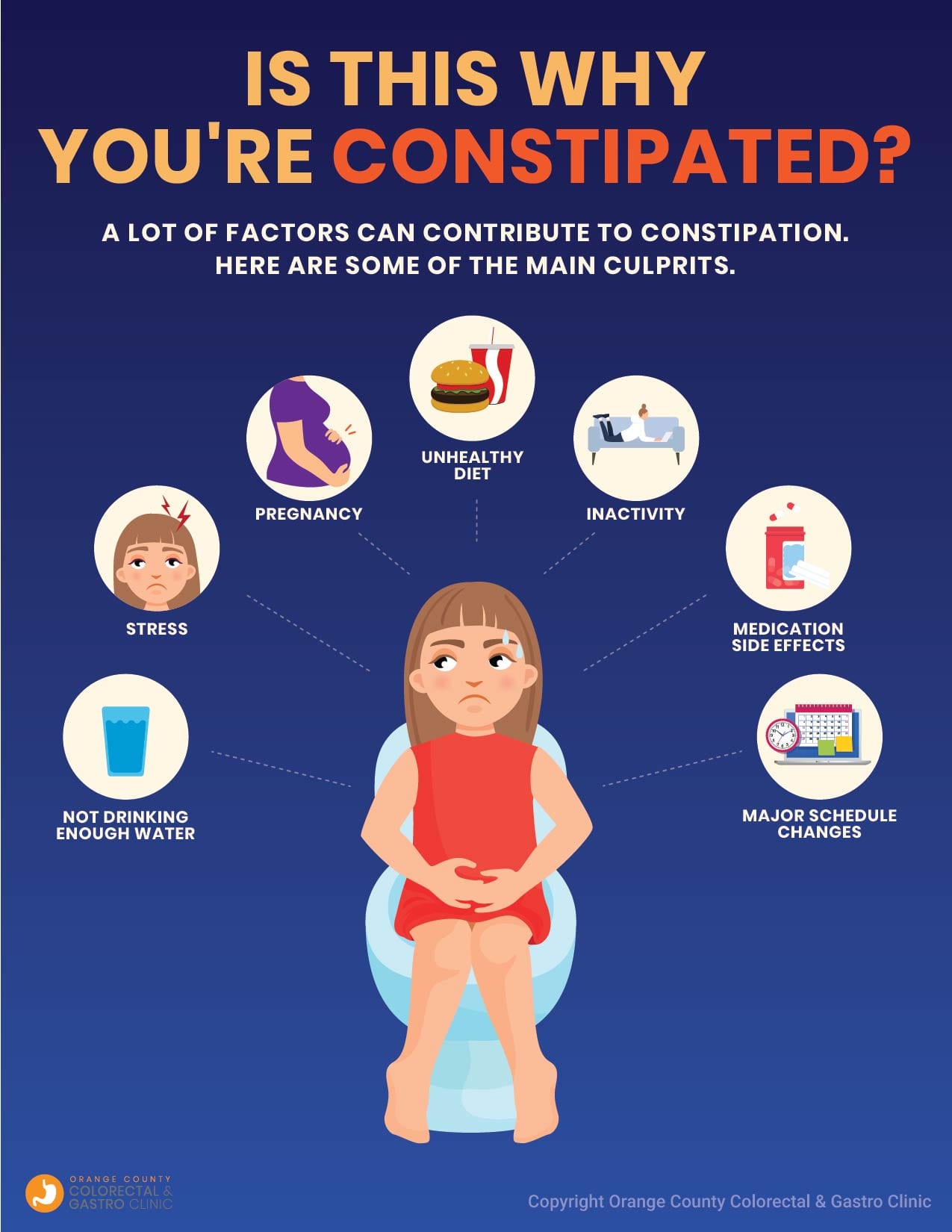Constipation is a condition in which a person has an abnormally low number of bowel movements and has a hard time moving their bowels. Most doctors define constipation as having fewer than three bowel movements a week, while others define it simply as an abnormally low number for that patient. Some people, after all, do go to the bathroom several times a day, and some may have only one or two bowel movements per week. Everybody agrees, however, that difficulty passing one’s stools is a sign of constipation. The stools are often dry and hard, and the patient may find expelling them painful. They also often feel as if they have not completely emptied their bowels.
What Can Cause Constipation?
Constipation is extremely common, and it has a multitude of causes. Poor diet, for example, is a common cause. The patient may not be eating enough foods with fiber, or they may be consuming too much dairy. Similarly, they may not be drinking enough water.
The patient may also be trying to “hold” a bowel movement, if they don’t want to go to the bathroom for some reason. They may also be under stress or not getting enough exercise. Changes in routine, like traveling or going to bed at unusual times, can also cause someone to become constipated.
Many types of medications can cause constipation. Examples include the following:
- Iron pills
- Antacids containing aluminum or calcium
- Non-steroidal anti-inflammatory drugs like ibuprofen
- Some antidepressants
- Some allergy medications
- Anticonvulsants
- Anti-nausea medications
- Some blood pressure medications
Various conditions can also cause constipation. Pregnancy, for example, can cause constipation. The developing baby puts pressure on the intestines and thus slows the passage of digested food. Many disorders of the digestive tract can cause constipation. Examples include irritable bowel syndrome (IBS), intestinal obstruction, lazy bowel syndrome, and diverticular disease. Other conditions that can cause constipation include the following:
- Endocrine disorders, like hypothyroidism, uremia, or diabetes
- Neurological disorders like stroke, Parkinson’s disease, or multiple sclerosis
- Colorectal cancer
- Lupus
- Scleroderma
What Are Some of the Risk Factors for Constipation?
As with many other conditions, there are risk factors that increase the chances of becoming constipated. A diet low in fiber is probably the best-known risk factor. Women are more susceptible to constipation than are men. The chances of developing constipation increase with age, as older people have slower metabolisms and weaker muscles in their digestive tracts. They are also usually less physically active than younger people, and lack of exercise also increases the risk of becoming constipated. Some mental health conditions, like an eating disorder or depression, also increase the risk of constipation. Patients who take certain medications also have an increased risk of becoming constipated.






